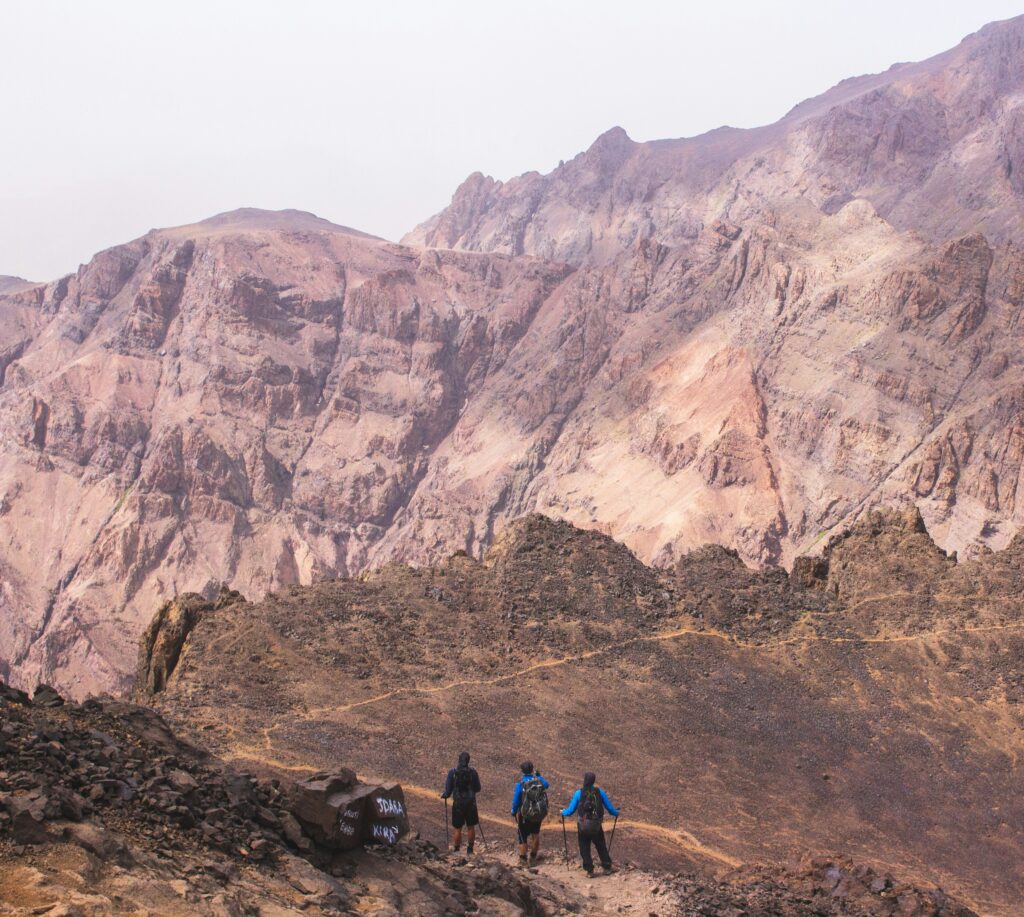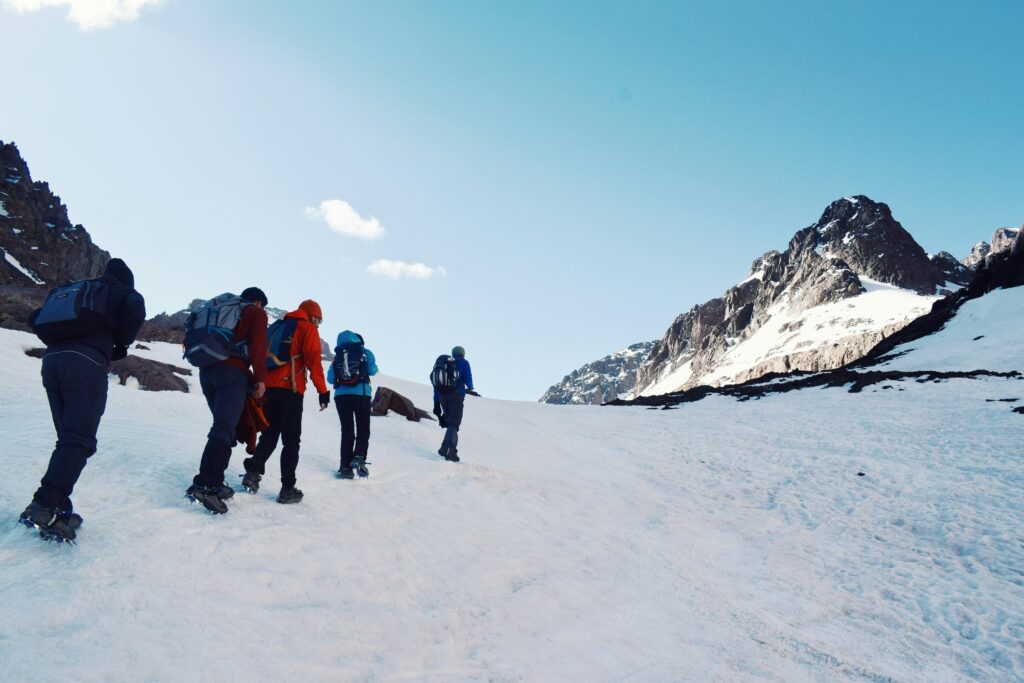How to Prepare for Climbing Mount Toubkal: A Complete Guide
Climbing Mount Toubkal, the highest peak in North Africa at 4,167 meters (13,671 feet), located in the High Atlas Mountains near Marrakech, is an adventure that blends stunning landscapes, cultural immersion, and physical challenge. Whether you’re an experienced trekker or a first-timer, proper preparation ensures a safe and enjoyable experience. This guide, informed by extensive research from trekking experts and recent insights, covers physical preparation, gear, acclimatisation, timing, cultural experiences, logistics, health, and safety, tailored for your journey with Ultimate Toubkal.
Physical and Mental Preparation
Research suggests that climbing Toubkal requires a solid fitness level due to long walking days, steep ascents, and high altitude. Start training 2-3 months in advance, incorporating cardio exercises like running, cycling, or swimming to build endurance, and strength training to bolster legs and core muscles. As noted in Top Tips for Climbing Mount Toubkal, practice long hikes with a loaded backpack, aiming for 10-15 kilometres with elevation gain to simulate the conditions. Mental preparation is equally vital; the trek can be mentally taxing, especially on summit day with early starts and long hours, so staying focused and positive is crucial. Recent advice from What Should You Know Before You Climb Mount Toubkal emphasises mental resilience, particularly for the demanding ascent.
Gear and Equipment Essentials

The evidence leans toward having the right gear for comfort and safety. Essential footwear includes sturdy, waterproof hiking boots with good ankle support to handle rocky trails. Clothing should include moisture-wicking base layers, a mid-layer like a fleece or down jacket for warmth, and a waterproof, windproof jacket for variable weather. Accessories are critical: a hat, gloves, and scarf for cold, sunglasses with UV protection, high-SPF sunscreen, and lip balm to combat dry, cold air. A 30-40 litre daypack is ideal for daily essentials, paired with a 2-litre water bottle or hydration bladder for hydration. For overnight stays, a warm sleeping bag rated for cold temperatures is necessary, especially at higher elevations. Trekking poles are recommended for stability on steep sections, a headlamp for early morning starts, and a basic first aid kit with blister care, pain relievers, and personal medications. Add crampons and ice axes for winter climbs, as highlighted in The Guide to Climbing Morocco’s Mount Toubkal. Recent packing tips from Climbing Mount Toubkal: Difficulty, Weather, Refuges, Altitude suggest organising your backpack with heavier items close to your back for balance, using small bags or stuff sacks to group similar items for easy access, ensuring comfort during long hours of trekking in Toubkal.
Acclimatisation and Health Considerations
Altitude sickness is a significant concern at high elevations, and the evidence leans toward spending at least one night at a lower altitude, like Imlil, before attempting the summit to aid acclimatisation. Drink at least 3-4 litres of water daily to stay hydrated, and avoid alcohol and caffeine, as advised in What I Wish I Knew Before Climbing Mount Toubkal. Watch for symptoms like headaches, nausea, or dizziness; if severe, descend immediately to lower altitudes. Sun protection is crucial due to the intense High Atlas UV—use hats, sunglasses, and high-SPF sunscreen. Carry a basic first aid kit and know how to use it, including for blisters and minor injuries, as recommended in Top 10 Tips for Climbing Mount Toubkal. Recent insights from Call to Adventure – Climb Mount Toubkal Tips From Local Expert emphasise staying hydrated and monitoring for altitude sickness, especially on longer treks.
Choosing the Right Itinerary and Timing

Winter edition

It seems likely that the duration of your trek impacts your experience, with options from 2 days for a quick summit to 5+ days for extended exploration. Ultimate Toubkal offers flexible itineraries: a 2-day trek is ideal for time-constrained, fit adventurers, while 3-day treks offer better pacing, and 4+ days allow for deeper immersion in Berber villages and High Atlas valleys. Route selection is crucial, with multiple paths available; consider your fitness and experience, as noted in Climbing Mount Toubkal: Everything you need to know. The best times to go are spring (April-June) and autumn (September-October), offering mild temperatures, clear skies, and blooming wildflowers, as per The Best Time to Climb Mount Toubkal. Summer can be hot with thunderstorms, and winter requires technical gear for snowy conditions, suitable only for experienced mountaineers, as mentioned in When Is the Best Time to Climb Mount Toubkal?. Check weather forecasts before your trek and book in advance, especially for peak seasons, and stay flexible for itinerary adjustments due to weather changes.
Cultural Immersion and Logistics
Trekking in Toubkal offers more than just a summit; it’s a chance to experience Berber villages and their rich culture. Interact with locals by learning basic Arabic or Berber phrases to connect, respect local customs by dressing modestly and asking permission for photos, and enjoy Berber hospitality with traditional meals like tagine and couscous. Most treks start from Marrakech with a transfer to Imlil, the trailhead, and include a support team of guides, cooks, and muleteers to carry gear. Expect early starts, especially on summit day, with meals provided at breakfast, lunch, and dinner, often in Berber villages or mountain refuges. Recent advice from What Should Know Before You Climb Mount Toubkal highlights the importance of respecting local culture, especially when staying in gites, which offer a comfortable and culturally rich experience compared to basic refuges.
Cash Requirements: Important Note:
Cash Requirements: Important Note: There are no ATMs in Imlil. Clients must bring sufficient cash (Moroccan Dirham) from Marrakech or Asni to cover personal expenses, such as snacks, drinks, souvenirs in Berber villages, and tips for the trekking team. Tipping is customary (10-20% of trek cost, divided among guide, cook, and muleteers) to show appreciation for their hard work. Exchange currency in Marrakech or withdraw cash at ATMs there or in Asni before heading to Imlil.
Health, Safety, and Final Tips
Safety is paramount, with altitude sickness being a key concern. Understand its symptoms and preventive measures, emphasising acclimatisation, hydration, and avoiding alcohol, as per Top Tips for Climbing Mount Toubkal. Tipping the trekking crew, including guides, muleteers, and cooks, is customary—aim for 10-20% of the total trek cost, divided among them, as noted in Climbing Mount Toubkal: Difficulty, Weather, Refuges, Altitude. Book in advance for peak seasons to secure your spot, check weather forecasts for safe conditions, and stay flexible for itinerary changes. With Ultimate Toubkal, you’re not just booking a trek—you’re embarking on an adventure with experts who know the High Atlas inside out, ensuring every aspect is taken care of for a memorable trekking in Toubkal experience.
